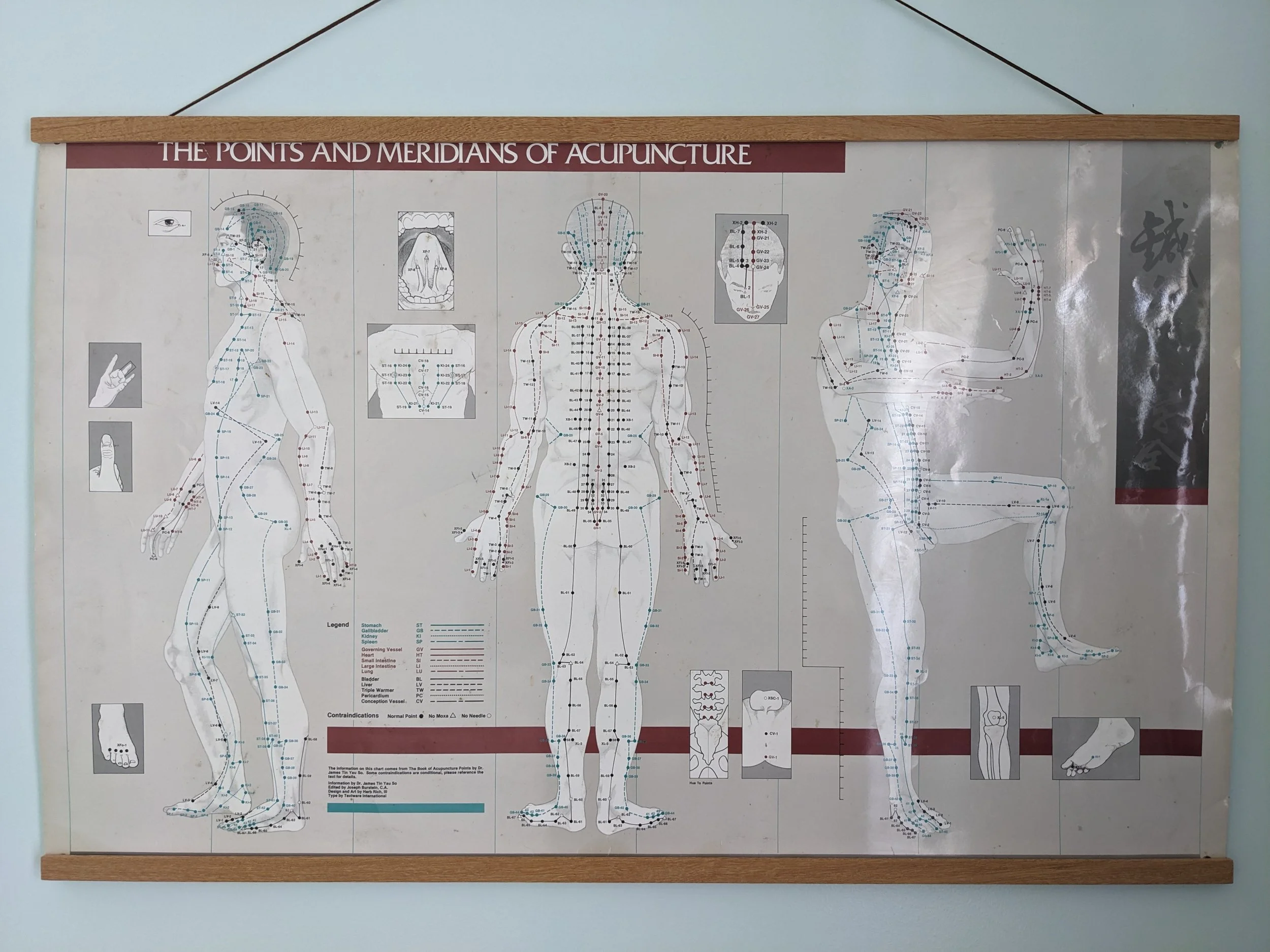
Frequently asked questions.
Does receiving acupuncture hurt?
For the most part, no, though receiving acupuncture is not entirely without sensation. Acupuncture needles are solid (filiform) and much thinner than the hollow hypodermic needles used for injections or drawing blood. Most acupuncture needles are also coated to allow them to slide effortlessly between the tissues without any friction. Often, the patient does not feel the needle going in at all. Other times there might be a slight pinch. As the needles begin to do their work, there may or may not be other sensations such as dull cramping, deep aching, tingling, or shooting sensations. These are common and not cause for alarm. However, if the feeling persists, you should let the acupuncturist know so that the needles can be adjusted or removed to maximize comfort during the treatment.
Does it treat…?
Yes! Acupuncture is becoming more and more well known for treating pain of all kinds, including low back pain, migraines, sports injuries, and menstrual cramps. However, we do internal medicine and medicine of the spirit as well. Virtually anything for which you would seek help through a Medical Doctor has already been treated for thousands of years with acupuncture. The biomedical sciences are catching up with this ancient knowledge more and more every day, confirming what practitioners of Chinese Medicine have known for centuries. Our acupuncturist has experience treating everything from anxiety and ADHD to uterine fibroids and peri-menopause symptoms to complex debilitating conditions like Long Covid and IBS.
What can I expect during my treatment?
Before your treatment, your acupuncturist will interview you about the condition(s) you wish to be treated for and ask for relevant health history. Please come prepared with the names and dosages of any medications and supplements you are taking. During this interview, you will also have the opportunity to ask any questions you may have about your treatment. Your acupuncturist will also take your pulses and look at your tongue as part of their diagnostic procedure. They will help you get comfortable on the table and explain what they are about to do before inserting any needles. Once the needles are inserted, you will rest with them in place for anywhere from 15-45 minutes, depending on the goals of the treatment. Your acupuncturist will take your pulses again after your treatment to record how it has changed and ask how you are feeling.
How many treatments will I need?
It depends. Each person’s body reacts differently to acupuncture, so we can’t make any promises about how quickly change will occur. For those with recent injuries, you may only need 1 - 3 treatments. For those with longstanding chronic illness, a guideline is that you will need one month of treatment for every year that you have been sick, but we have seen patients recover more quickly and mores slowly depending on other circumstances in their lives. A common initial prescription is for patients to return weekly for 6 weeks, then reassess, but we leave it entirely up to the patient how they would like to schedule out their treatments. When patients are in acute pain, they may want to schedule twice a week, until their pain is down to a more manageable level. Over time, treatments can be spaced out to every week, every two weeks, or every 4 - 6 weeks as conditions improve.
Will it interfere with other treatments?
Acupuncture is far more likely to play a supportive role alongside other types of treatment than to interfere with them. However, it is a good idea to let your acupuncturist know what other treatments you are undergoing, so that they can work to align with them. Acupuncture can work well alongside massage, osteopathic manipulation, and physical therapy to reduce pain. It will not interfere with other types of pain management, and you can still get acupuncture following surgeries or with implanted medical devices in place. Acupuncture can work well alongside herbs and supplements or prescription medication to manage conditions such as anxiety, insomnia, IBS, diabetes, asthma, allergies, and hormonal conditions, among other things.
Do you take my insurance?
Although we are currently cash and check only, we are working diligently toward being able to accept the following insurance providers:
VA
All Ohio Medicaid Plans
Ohio Medicare
Anthem
Please see also our Community Care page for more info on our low cost options.
